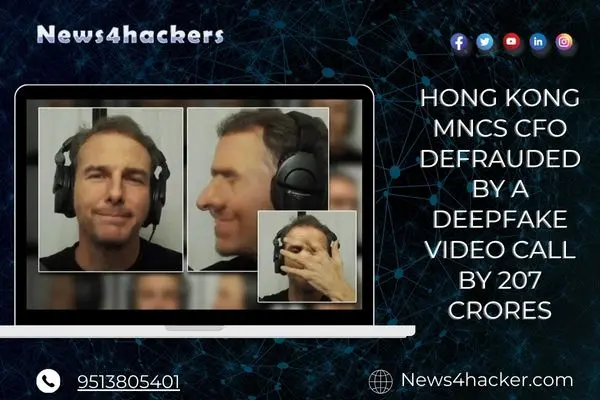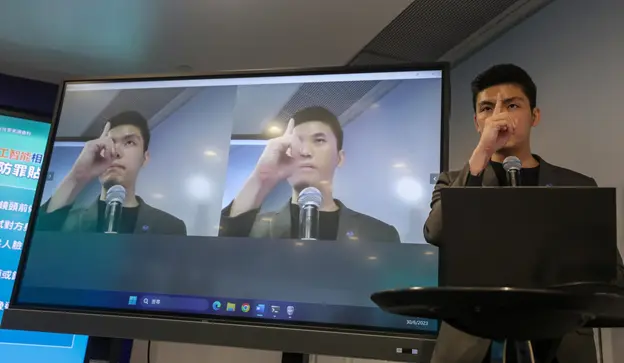Hong Kong MNCs CFO Defrauded by A Deepfake Video Call by 207 Crores

Synopsis:
All participants in the video chat were artificially generated using publicly accessible video material, which was edited and manipulated to construct a realistic video conference setting.

Hong Kong: A global corporation’s office in Hong Kong has fallen victim to a fraudulent scheme involving deepfake technology, resulting in a loss of HK$200 million.
According to a report from the South China Morning Post, the fraudsters employed a digitally simulated representation of the organization’s Chief Financial Officer, who instructed the employees to carry out money transfers during a video conference.

‘Deepfakes’ are synthetic representations of actual individuals that are produced by diverse generative techniques to replicate the facial features of a person. This is achieved by using the power of artificial intelligence (AI) and machine learning to generate a highly realistic digital replica of an actual individual.
All participants in the video chat were fabricated using readily accessible video footage, which was edited and manipulated to construct a plausible virtual meeting setting.

During the meeting, the fraudsters exercised caution in limiting their interaction with the victim and efficiently mentioned only a few orders before suddenly terminating the call.
Subsequently, they maintained communication by means of messaging the clients, sending emails, and doing individual video conferences.
Recently, the renowned Bollywood actor Akshay Kumar fell prey to a deepfake video that exploited his appearance to endorse gambling. Renowned singer-songwriter Taylor Swift was also targeted by explicit deepfake videos that were widely circulated on the internet.
About The Author:
Yogesh Naager is a content marketer who specializes in the cybersecurity and B2B space. Besides writing for the News4Hackers blog, he’s also written for brands including CollegeDunia, Utsav Fashion, and NASSCOM. Naager entered the field of content in an unusual way. He began his career as an insurance sales executive, where he developed an interest in simplifying difficult concepts. He also combines this interest with a love of narrative, which makes him a good writer in the cybersecurity field. In the bottom line, he frequently writes for Craw Security.
Read more:
Two Million Job Seekers Became Target of Data Breaches by Cybercriminals.
For Continuous 5 Years, Chinese Hackers Have Operated Undetected in U.S. Critical Infrastructure








